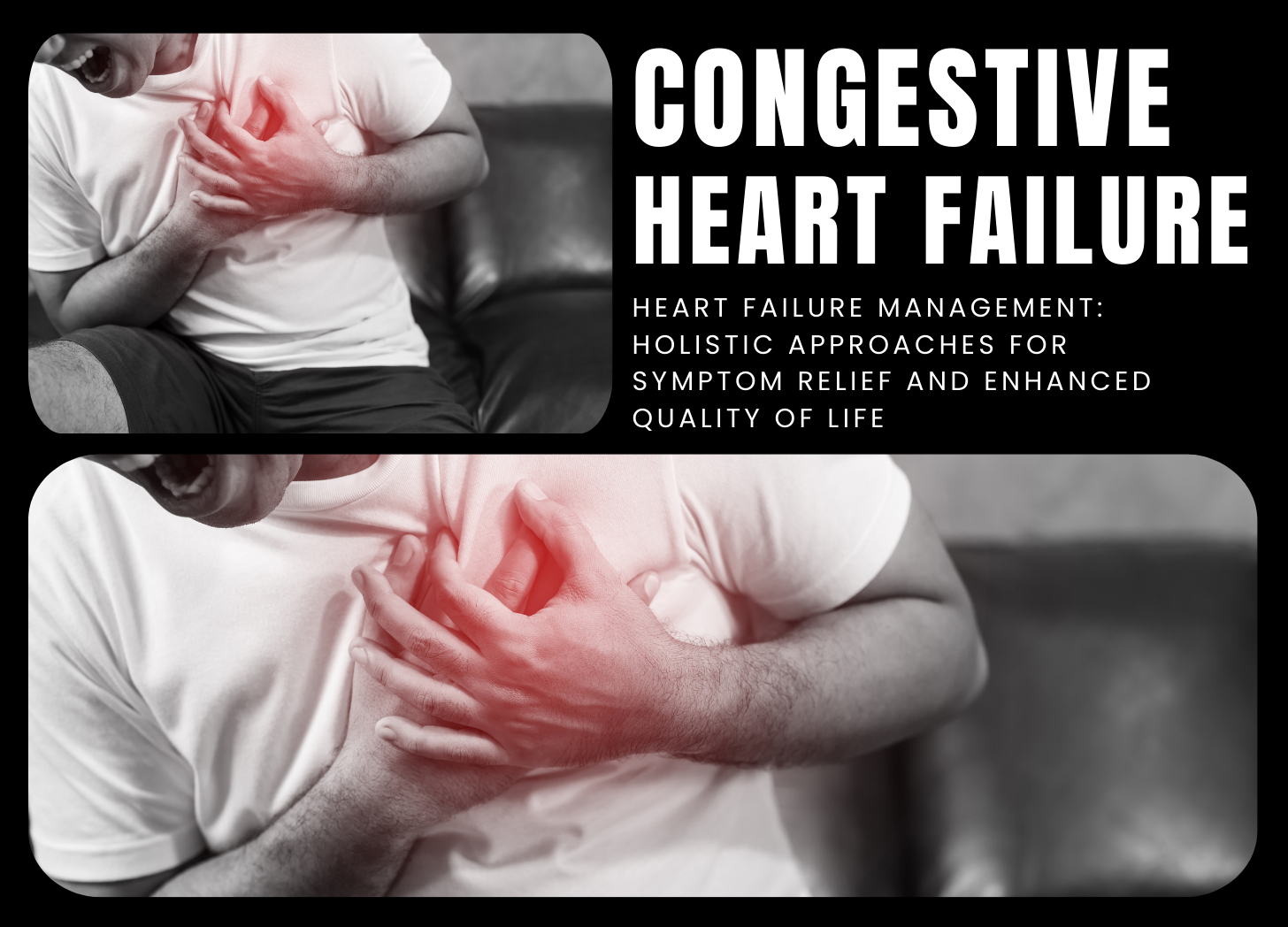Contact Us
Contact Us

Congestive Heart Failure (CHF) emerges as a common and deadly cardiovascular disorder that affects millions of people worldwide and places a considerable strain on healthcare systems. CHF is the inability of the heart to efficiently pump blood, resulting in fluid buildup (congestion) in various regions of the body. Shortness of breath, weariness, swelling in the legs and abdomen, and chronic coughing are all common symptoms of CHF, which can worsen with physical exercise or lying flat. CHF can be caused by a variety of underlying heart problems, including coronary artery disease, hypertension, or myocardial infarction, as well as heart valve disorders, congenital heart defects, and cardiomyopathy.
Managing CHF is a multifaceted approach that aims to alleviate symptoms, improve heart function, and improve overall quality of life. Lifestyle improvements, such as reducing salt consumption, exercising regularly within personal limitations, quitting smoking, and managing weight, are critical in CHF management. Diuretics, ACE inhibitors, beta-blockers, and angiotensin II receptor blockers are typical medications used to treat symptoms, minimize fluid buildup, and enhance heart function. In some circumstances, medical devices such as implantable cardioverter-defibrillators (ICDs) or cardiac resynchronization treatment (CRT) may be prescribed to regulate heart rhythm and improve cardiac function.
Furthermore, CHF patients require constant monitoring and regular follow-ups with healthcare experts to assess illness progression, change treatment strategies, and discover problems early. In severe cases of CHF where medical therapy is no longer effective, heart transplantation or mechanical circulatory support devices such as ventricular assist devices (VADs) may be considered to improve survival and quality of life. Palliative care and hospice services are also provided to provide comfort and support to CHF patients and their families, especially in the last phases of the disease.
Finally, CHF presents major obstacles to those affected by the condition, needing a comprehensive and multidisciplinary approach to management. Understanding the symptoms, causes, and available treatment choices allows patients and healthcare professionals to work together effectively to optimize outcomes and improve the quality of life for persons living with CHF.
American Heart Association. (n.d.). Heart Failure. Retrieved from https://www.heart.org/en/health-topics/heart-failure
Post a Comment